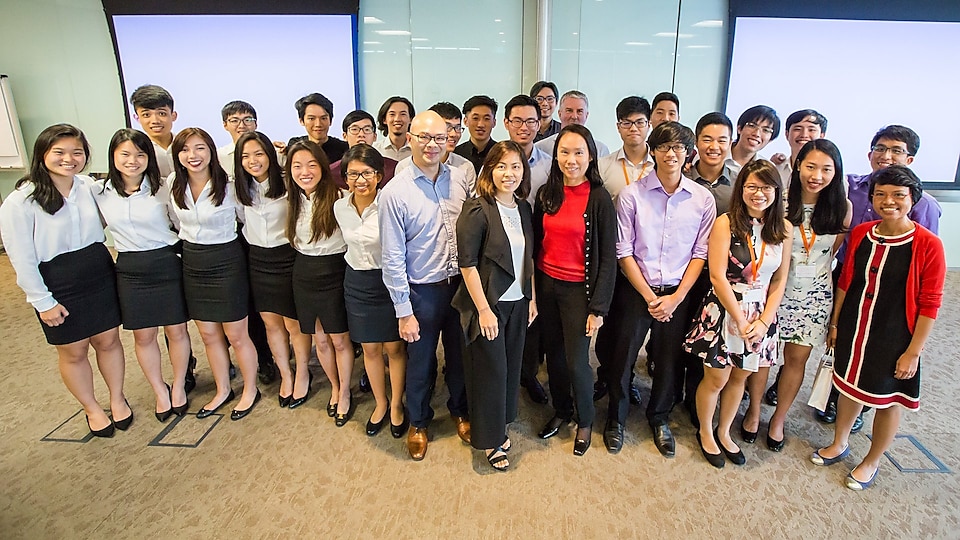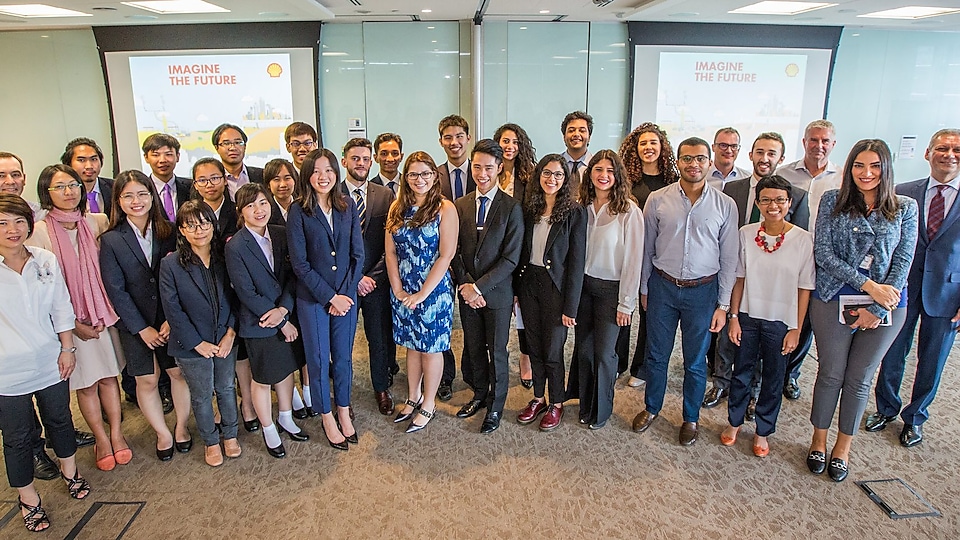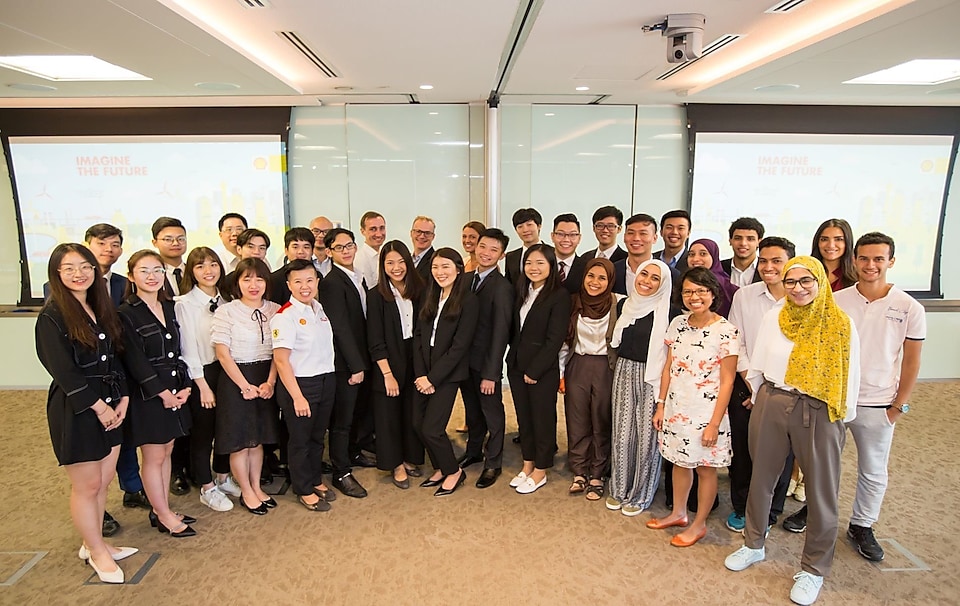
Imagine the Future Competition 2019/2020
Scenarios provide plausible alternative views of the future. Building and using scenarios can help us explore what the future might look like and the likely challenges of living in it.

Shell Imagine the Future Scenarios Competition 2019/2020
The World as They See It: How Today’s Youths Envision the Way We Live, Work and Play in the Future
The future is uncertain, but the issues we face today can give rise to a range of possible future outcomes.
Different factors such as the economy, environment, politics and technologies affect global energy use and demand, and can vastly change how we live, work and play in the future. Exploring and anticipating alternative futures will determine if we are able to successfully navigate the world of tomorrow.
Shell, a pioneer in the use of scenario with 50 years of experience, taps into this skill to enable youths to stretch their thinking and imagination to address our energy challenges. By imagining plausible alternative views of the future, these scenarios allow youths to explore the future and the potential challenges of living in it.
Since 2016, Shell has been inviting university students to reimagine a future of more and cleaner energy in Asian and Middle Eastern cities, and how that can change daily living.
This year, university students from Singapore, Egypt and Thailand participated in the third edition of the Imagine the Future Scenarios Competition based on the theme, ‘More and Cleaner Energy in an Asia Pacific or Middle Eastern city in 2050 – How will residents live, work, and play?’.
With the national finals held in the respective countries earlier this year, the winning national teams from Singapore, Egypt and Thailand competed in the regional finals on August 11, 2020, held virtually for the first time due to the COVID-19 pandemic.
Here’s an excerpt of the scenarios by this year’s national winners:
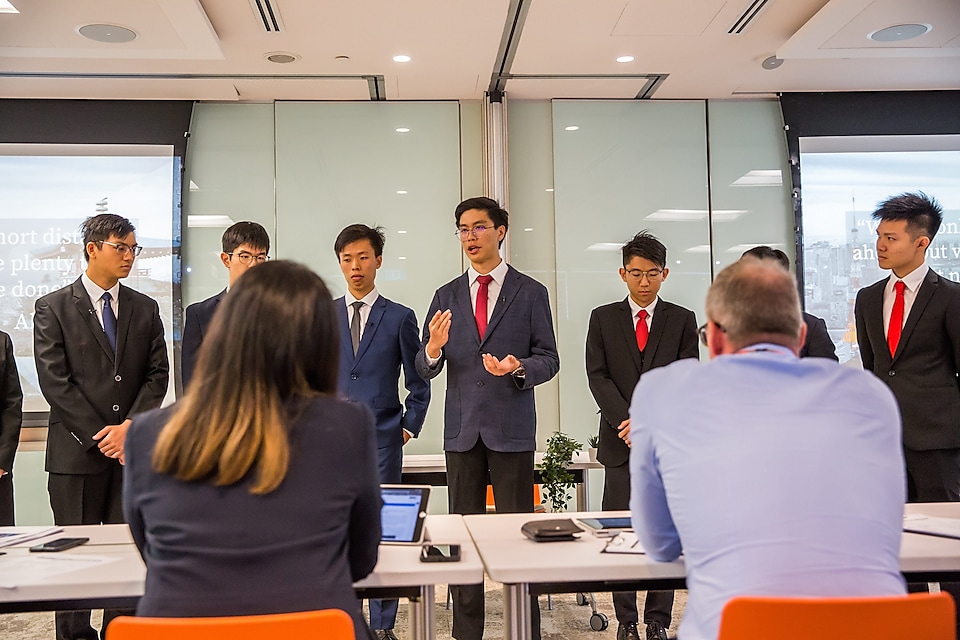
Koshi vs Banbo by Nanyang Technological University, Singapore
With technology adoption as the main variable, the Singapore team explored two distinct storylines that could play out in Tokyo, Japan. The selection of Tokyo mirrors the modern universal issues that the developed world is currently facing, such as an ageing society, increasing land constraints, and income inequality.
The first, “Koshi” (広至), which translates to a vast expanse in Japanese, paints the picture of an integrated world where a globalised and extremely liberal outlook towards technology has resulted in its widespread dominance. For example, fully automated self-driving cars, floating cities, plant-based diets, genetic editing, and weather control are the technological advances that impact residents’ lifestyles in the “Koshi” world.
The second, “Banbo” (万保), which means greater security, presents an opposite world where nationalistic and conservative mindsets have led people to be guarded against external forces. The adoption of technology takes on a different direction here. People use predictive simulations such as augmented reality (AR) and virtual reality (VR) to balance out energy needs and global climate needs to ensure the safe use and optimsation of technology, prior to its implementation.
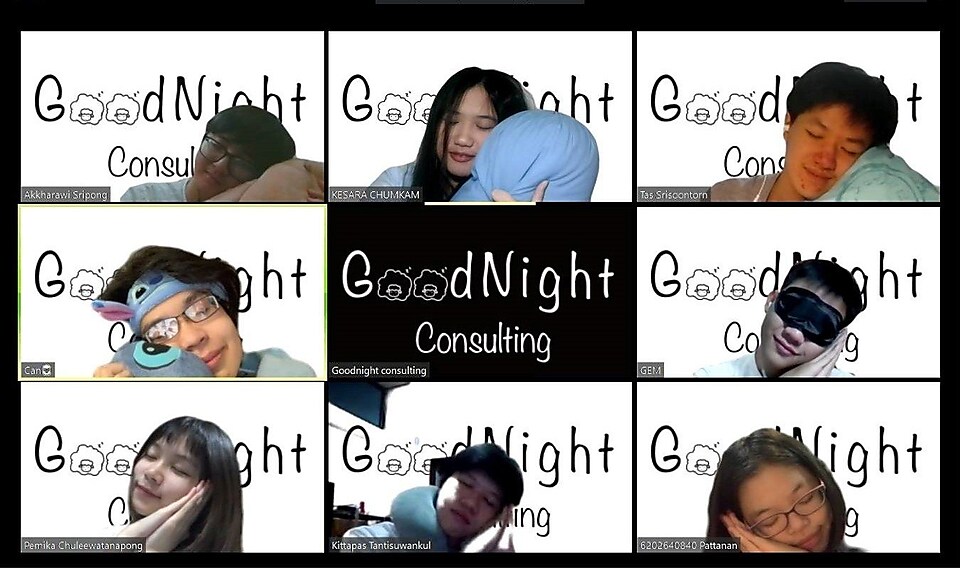
Honeybee vs Lazy Sloth, by Thammasat University, Thailand
Keeping the environment in mind and how natural disasters could drastically impact society, human behaviour and technology, the Thailand team put forth scenarios, set in their home city of Bangkok, that revolve around these factors.
In “Honeybee”, natural disasters become commonplace and this turbulence unites people as they recognise the importance of conservation to protect societal health and wellbeing. While some industries such as insurance will grow in response, other such as infrastructure will need to be redesigned.
On the other hand, in the “Lazy Sloth” scenario where natural disasters are a rarity, people tend to be individualistic. The economy is also able to focus on the growth of the economy and technology as it paves the way for more efficient production of goods and services.
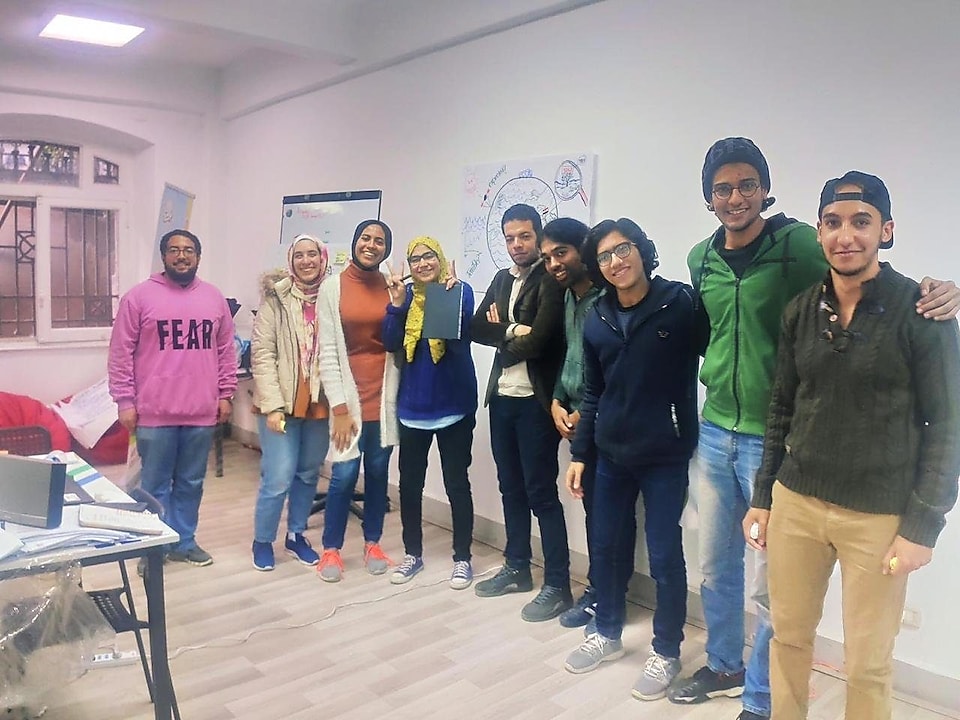
A Diamond in the Rough vs For Mother Africa! by the University of Science and Technology at Zewail City, Egypt
The Egypt team focused on African regional cooperation and socio-political in coming up with their scenarios.
In “A Diamond in the Rough”, the Egyptian city of Aswan is marked by minimal regional cooperation and conservative socio-political ideology. At the same time, it shifts the city towards self-sufficiency and to explore sustainable and even controversial agricultural methods such as hydroponic agriculture, insect farming, and genetic modification.
On the contrary, Aswan in the “For Mother Africa!” scenario is characterised by optimal regional cooperation and progressive socio-political ideology that promotes mutual relationships on economic and cultural fronts. In this scenario, Aswan emerges as a multi-cultural trade centre that serves as a gateway to the continent and an assembly point that connects the region.
Shell Imagine the Future Scenarios Competition 2019/2020 Regional Finals
Title: Imagine The Future Facebook Instagram Global video
Duration: 34 seconds
Description:
Montage video on the ITF students, and their ideas on the energy future of how people live, work and play in 2050.
[Text Display]
Imagine The Future Journey 2019/2020
[Video Footage]
Female student presenting
[Dialogue: Male]
How will more and cleaner energy look like? How will people live, work and play?
[Video Footage]
Male student presenting.
[Video Footage]
Female mentor teaching.
[Video Footage]
Students doing workshop activity
[Video Footage]
Female student enquiring
[Video Footage]
Male mentor teaching
[Video Footage]
Female student listening
[Dialogue: Female]
The competition is about scenario building and to build plausible scenarios for the future in 2050.
[Video Footage]
Male mentor teaching
[Video Footage]
Students doing workshop activity
[Video Footage]
Students presenting at workshop
[Dialogue: Male]
How exactly will the problems of tomorrow be resolved?
[Video Footage]
Group of people in front of projector screen on a Zoom call
[Video Footage]
Computer screen of a Zoom call
[Video Footage]
Male mentor explaining
[Dialogue: Male]
We have the power to shape the world with this technology.
[Video Footage]
Female asking questions
[Video Footage]
Male student explaining exhibit
[Dialogue: Male]
The little things have a lot of impact.
[Video Footage]
Male student talking on Zoom call
[Video Footage]
Male mentor listening on Zoom call
[Video Footage]
Male student talking on Zoom call
[Video Footage]
Male mentor listening on Zoom call
[Dialogue: Male]
This is just how you are going to change the world and how could you be a part of it.
[Video Footage]
Egypt team posing for photo
[Video Footage]
Singapore team posing for photo
[Text Display]
Imagine The Future Scenarios Competition
[Shell Hecten]
[Shell Jingle]
Shell Imagine the Future Scenarios Competition 2019/2020 Regional Finals | The Journey
Title: Imagine The Future 2019/2020 Regional Journey
Duration: 1 minute 18 seconds
Description:
Montage video on the ITF students, and their ideas on the energy future of how people live, work and play in 2050.
[Video Footage]
Two male students on their laptop and iPad.
[Dialogue: Male]
How will more and cleaner energy look like? How will people live, work and play?
[Video Footage]
Male student presenting.
[Video Footage]
Student writing “Live Work Play” on mahjong paper.
[Text Display]
The Imagine The Future Journey
[Video Footage]
Instructor pointing at a screen while talking.
[Dialogue: Female]
The competition is about scenario building and to build plausible scenarios for the future in 2050.
[Video Footage]
Male student taking notes
[Video Footage]
Female student Interview
[Video Footage]
Male mentor teaching
[Dialogue: Male]
How you gonna change the world, how you gonna imagine the world will be, and how could you be the part of it.
[Video Footage]
Group of students listening
[Video Footage]
Male student Interview
[Video Footage]
Group of students discussing
[Dialogue: Female]
We want to think in new perspectives, to consider many possibilities, and I get to broaden how I view the modern world.
[Video Footage]
Female student Interview
[Video Footage]
Male student presenting while partner holds up mahjong paper
[Video Footage]
Group of students discussing
[Video Footage]
Male student interacting with a VR headset
[Video Footage]
Female student Interview
[Video Footage]
Male student presenting his display
[Dialogue: Male]
As technology and humans continue to integrate into each other lives, we have the power to shape the world with this technology.
[Video Footage]
Computer screen of a Zoom call
[Video Footage]
Male judge speaking on a Zoom call
[Video Footage]
Male student presenting
[Video Footage]
Female judge speaking on a Zoom call
[Dialogue: Female]
Our variety of perspectives made us realise what the world could look like, depending on the choices we make today.
[Video Footage]
Female student speaking
[Video Footage]
Students shaking hands with male judge.
[Video Footage]
Female student presenting.
[Video Footage]
Judge talking on a Zoom call
[Video Footage]
Judge talking on a Zoom call while gesturing his hands
[Dialogue: Male]
We need to flex our mentality in order to be ready for what the future holds.
[Video Footage]
Male student Interview
[Dialogue: Male]
The little things have a lot of impact. Everything factors into the future.
[Video Footage]
Male judge talking on a Zoom call
[Video Footage]
Male student talking on Zoom call
[Video Footage]
Male mentor listening on Zoom call
[Video Footage]
Male student interview.
[Video Footage]
Volunteers clapping hands
[Dialogue: Male]
This is the first time the world is facing an international crisis, so how we act today will really shape the future.
[Video Footage]
Group of students discussing
[Video Footage]
Group of students seated together listening
[Video Footage]
Male student interview
[Video Footage]
Female student speaks then looks at her group member
[Dialogue: Male]
Every single step along the way counts. It’s not just 2050, it’s every single year every single minute.
[Video Footage]
Singapore team posing for photo
[Video Footage]
Egypt teams posing for photo
[Text Display]
Imagine The Future Scenarios Competition
[Shell Hecten]
[Shell Jingle]
Shell Imagine the Future Scenarios Competition 2019/2020 Singapore Finals | How do you imagine the future?
Title: Imagine The Future Training
Duration: 49 seconds
Description:
Montage video on the ITFC students, and their ideas on the energy saving possibilities available in 2050
[Text Display]
How Do You Imagine The Future
[Video Footage]
A man looking straight ahead
[Dialogue: Male]
In the future in 2050 will be disruptive.
[Video Footage]
Male Interview
[Dialogue: Male]
It's a future where we're all well connected.
[Video Footage]
Male interview
[Video Footage]
Instructor talking to the students.
[Dialogue: Male]
The future will be without this.
[Video Footage]
Male Interview as he throws a plastic bottle.
[Video Footage]
Man listening intently
[Dialogue: Male]
I believe that we'll be able to use nano technology to a much greater scale.
[Video Footage]
Instructor speaking
[Video Footage]
Male Interview
[Dialogue: Male]
We can like do anything we want and things will just come to us.
[Video Footage]
Student taking down notes
[Video Footage]
Male Interview
[Video Footage]
Student underlines the word “PLAY” on a piece of blank paper.
[Video Footage]
Male interview
[Dialogue: Male]
In 2050 I imagine space travel to be a lot more prevalent and block chain technology will take over the world.
[Video Footage]
Male interview
[Video Footage]
Two students discussing as one gestures with a tablet.
[Video Footage]
A group of students surrounding each other as they discuss.
[Dialogue: Male]
We have to tightly control the type of information that we let other people know about ourselves.
[Video Footage]
Male interview
[Video Footage]
A student deep in thought.
[Video Footage]
A student presenting his ideas.
[Dialogue: Female]
I think AI will become more human but we as humans would have found better ways to collaborate with AI.
[Video Footage]
A student taking down notes.
[Video Footage]
Female Interview
[Dialogue: Female]
I think it'll be a future that will belongs to the people and be the power of collaboration.
[Video Footage]
A student listening.
[Video Footage]
A student listening.
[Video Footage]
Female Interview
[Text Display]
Imagine The Future
[Shell Hecten]
[Shell Jingle]
Shell Imagine the Future Scenarios Competition 2019/2020 Singapore Finals | The Journey
Title: Shell Imagine The Future Singapore Journey
Duration: 1min 34 secs
Description:
Montage video on Shell Imagine the Future Singapore Journey showcasing the journey of students come
up with ideas for the future by imagining the future.
[Video Footage]
Students’ Exhibition Setup
[Video Footage]
Students’ Exhibition Setup
[Video Footage]
Students’ Exhibition Setup
[Video Footage]
Male Interview
[Dialogue: Male]
The future is quite uncertain, but it comes with a lot of opportunities.
[Video Footage]
Male presenting and talking
[Dialogue: Male]
How will more and cleaner energy look like? How will people live, work and play?
[Video Footage]
Student writing on paper
[Video Footage]
Back of male listening
[Text Display]
Imagine The Future The Singapore Journey
[Video Footage]
Female student listening
[Video Footage]
Female Interview
[Dialogue: Female]
We were tasked to envision different scenarios about what the future could look like.
[Video Footage]
Male student presenting his groups’ exhibit
[Video Footage]
Judge nodding his head while looking at student’s exhibit
[Video Footage]
Male Interview
[Dialogue: Male]
It’s about understanding the choices we make today. Understanding how other peoples’ choices affect
ours.
[Video Footage]
A man pointing to TV screen to teach students
[Video Footage]
Male student listening
[Video Footage]
Male student presenting while another male student is holding up mind map
[Video Footage]
Male Interview
[Dialogue: Male]
So, it’s about pushing boundaries, it’s about us trying to take what’s commonly accepted right now and
push it to the furthest extent.
[Video Footage]
Male mentor teaching
[Video Footage]
Students listening
[Video Footage]
Male explaining exhibits
[Video Footage]
Male student participating in exhibit activity
[Video Footage]
Female Interview
[Dialogue: Female]
This experience is important because it helps us to expand our thoughts and our minds about what
really is possible towards the future.
[Video Footage]
Female student focused on doing work
[Video Footage]
Male presenting and talking
[Dialogue: Male]
By 2050, we will struggle with optimizing resources for a global population of 9 billion.
[Video Footage]
Female presenting
[Video Footage]
Judges providing feedback
[Video Footage]
Female student answering Judge’s question
[Video Footage]
Male presenting and talking
[Dialogue: Male]
Lack of environmental awareness and consciousness has resulted in a greatly degraded environment.
[Video Footage]
Male Presenting
[Video Footage]
Female Presenting
[Video Footage]
Male presenting and talking
[Dialogue: Male]
We expect that in 2050, a large portion of the- workforce will be automated with the use of artificial
intelligence.
[Video Footage]
Male student listening to presentation
[Video Footage]
Judges listening to presentation
[Video Footage]
Male interview
[Dialogue: Male]
This is the first time the world is facing an international crisis. So, how we act today will really shape the
future.
[Video Footage]
Students listening to presentation
[Video Footage]
Male student presenting by acting out actions
[Video Footage]
Male student presenting by acting out actions
[Video Footage]
Male students preparing for their presentation
[Video Footage]
Male presenting and talking
[Dialogue: Male]
As technology and humans continue to integrate into each others’ lives. We.. have the power to shape
the world with this technology.
[Video Footage]
Male student asking questions
[Video Footage]
Female and male student presenting
[Video Footage]
Female and male student discussing
[Video Footage]
Female interview
[Dialogue: Female]
The future is a summation of our actions today. We really have to understand why we make these
choices and how they impact our future.
[Video Footage]
Male students presenting
[Video Footage]
Male interview
[Dialogue: Male]
Everyone should be independent, but everyone should collaborate.
[Video Footage]
Adult shaking students’ hands
[Video Footage]
Students discussing
[Video Footage]
Male interview
[Dialogue: Male]
Every single step along the way counts. It’s not just 2050, it’s every single year, every single minute.
[Video Footage]
Group shot
[Shell Hecten]
[Shell Jingle]
Imagine the Future scenarios
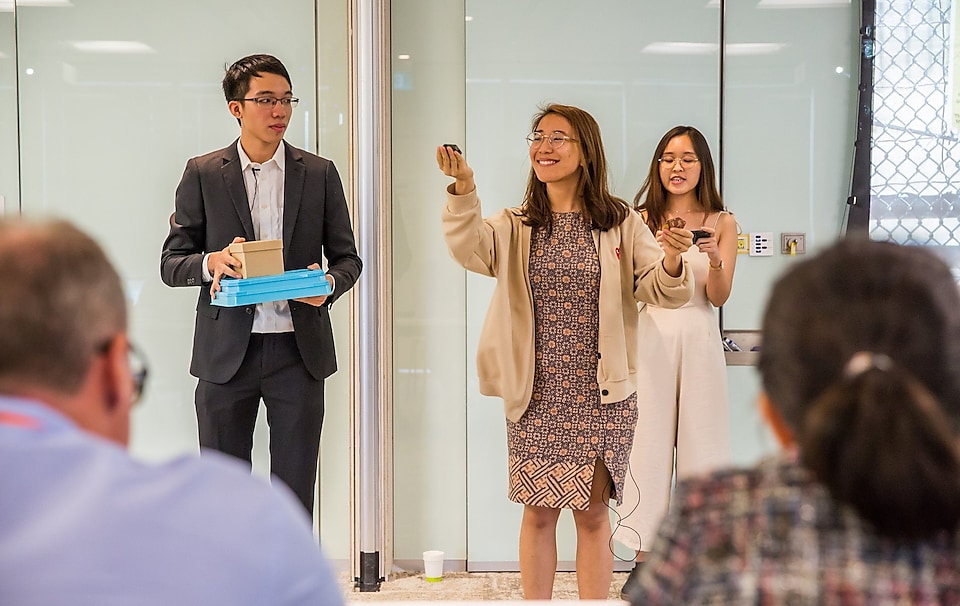
How would we live, work and play in 2050?
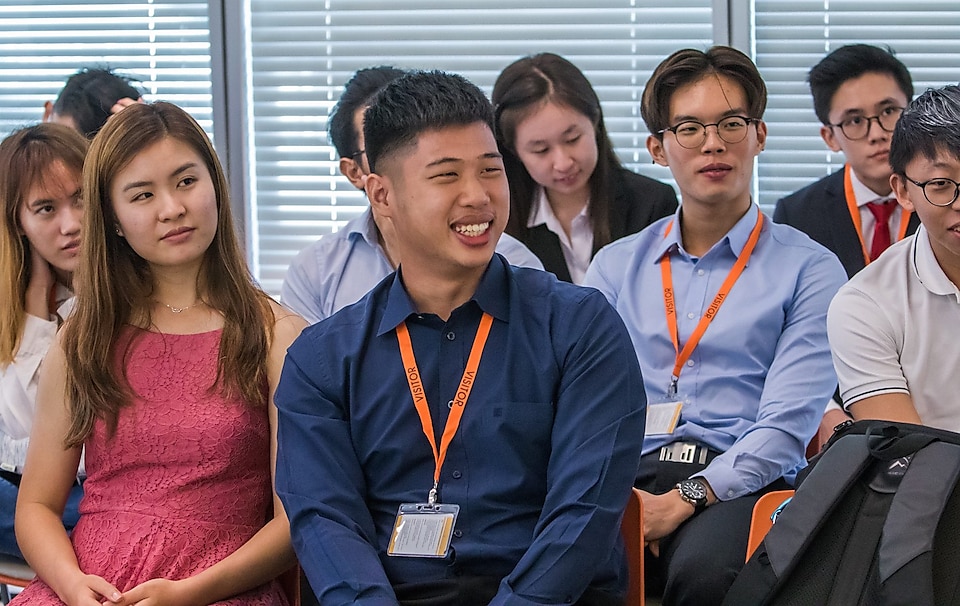
Scenarios provide plausible alternative views of the future.
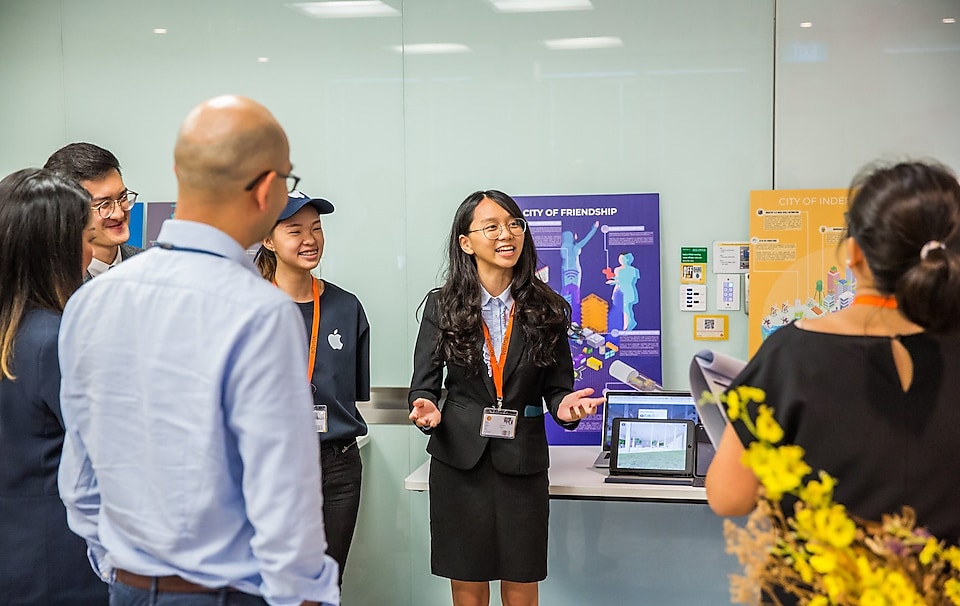
Building and using scenarios can help us explore what the future might look like and the likely challenges of living in it
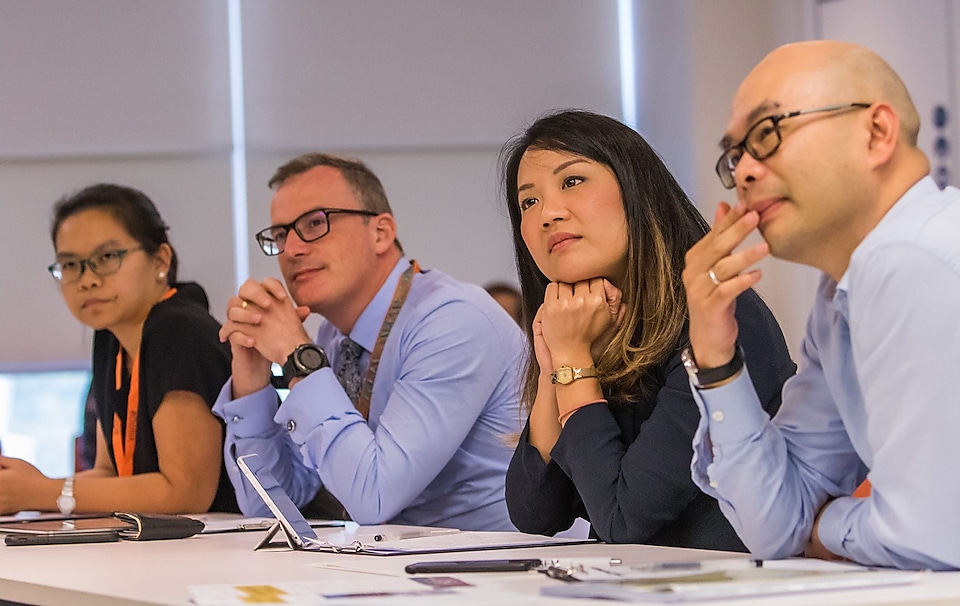
Imagine the Future Scenarios Competition allows us to think of a cleaner and more energy efficient future.
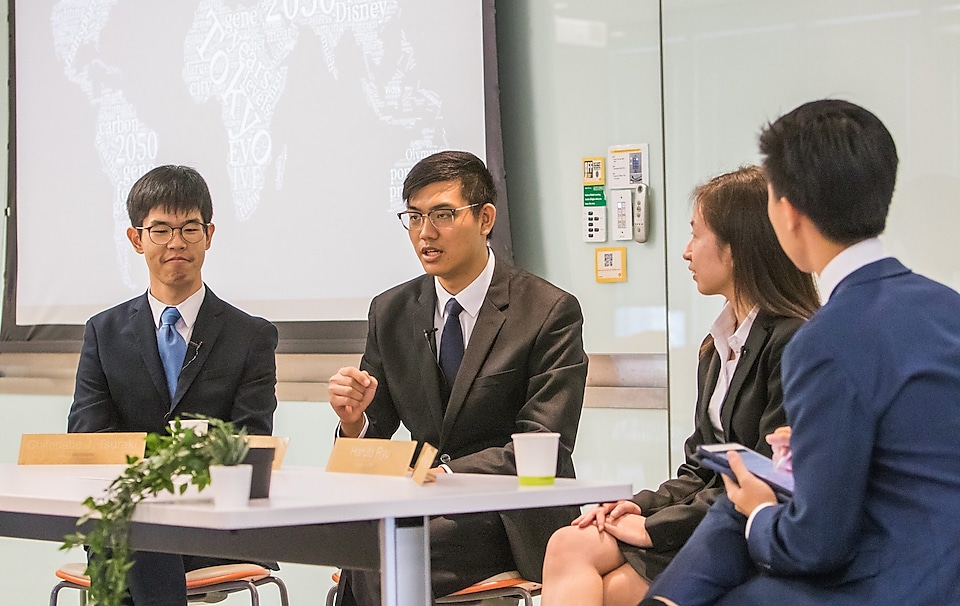
Discover what possibilities lie in the future of energy through the Imagine the Future Scenarios Competition.
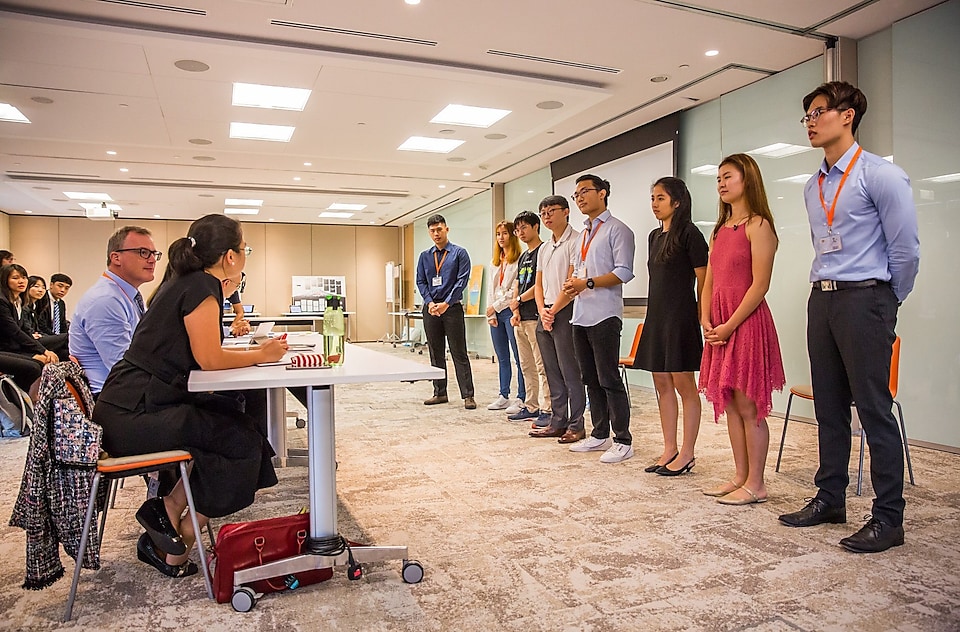
Together, we can Imagine the Future.
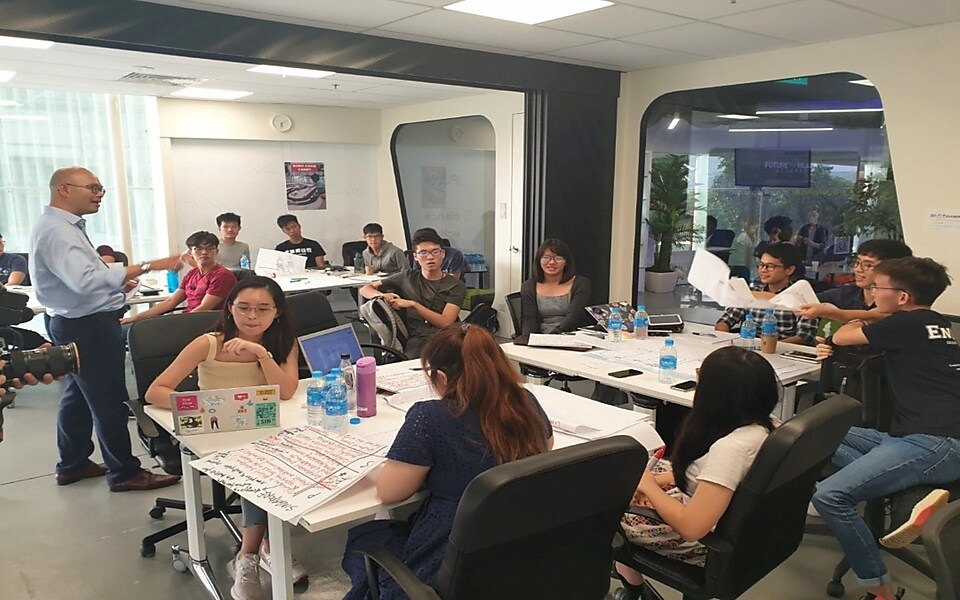
Teams attending their first scenarios training session with Shell Energy Ambitions Programme Manager, Val Chow.
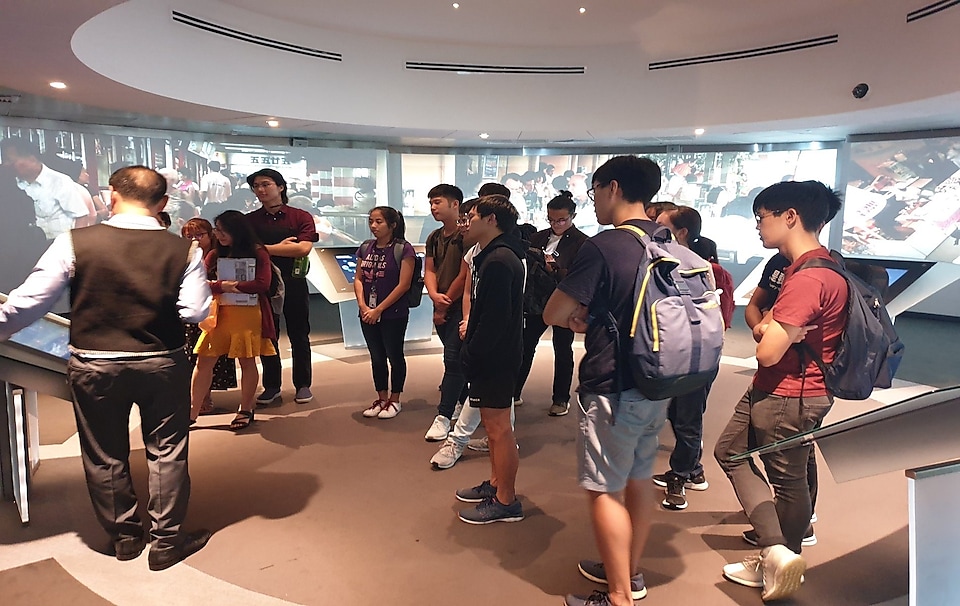
Teams visiting The Urban Redevelopment Authority of Singapore to learn how master planning contributes to making Singapore a great city.
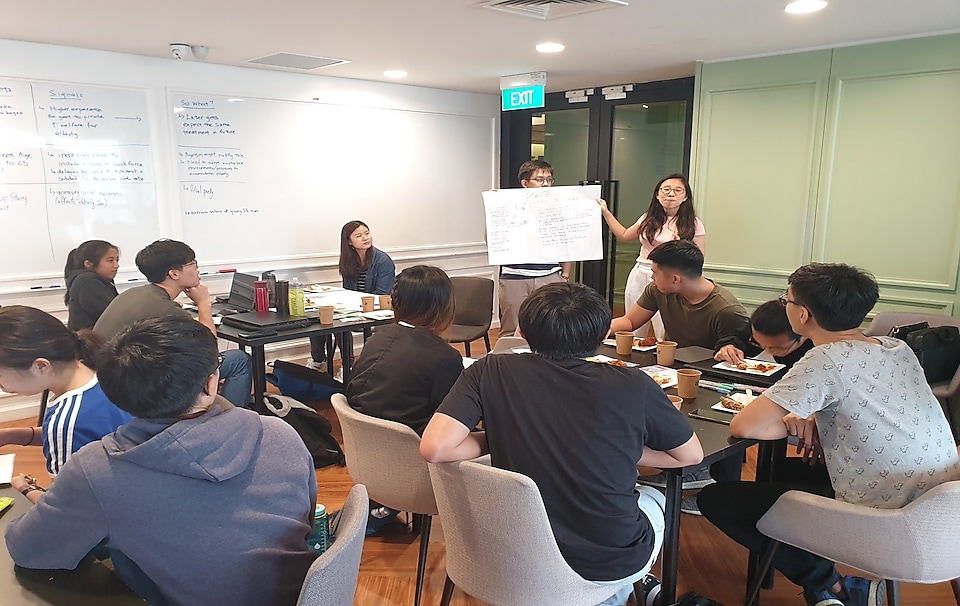
Teams sharing their ideas in a workshop run by Centre for Strategic Futures.
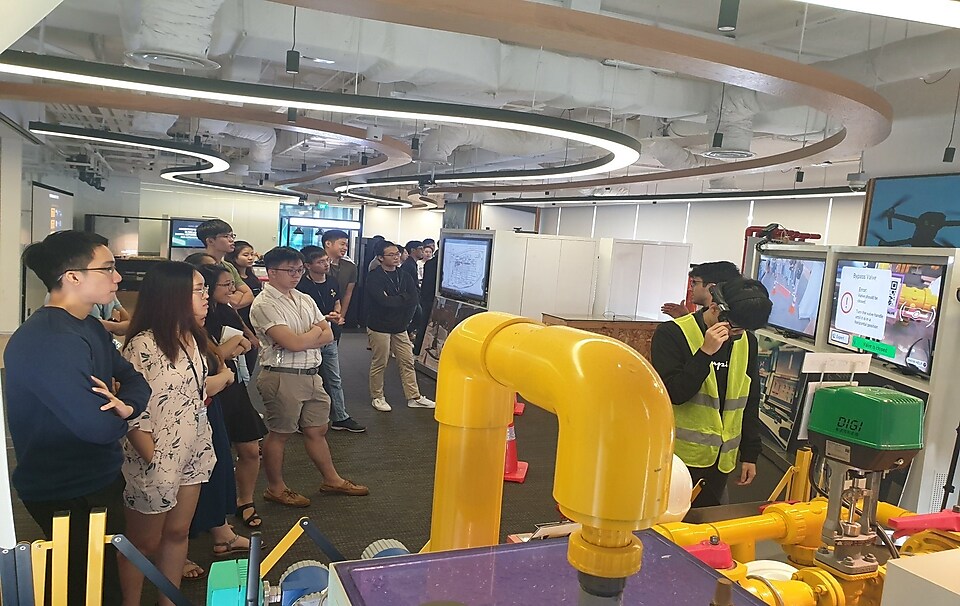
How will technology change the way we live, work and play in 2050?
Previous editions
Imagine the Future Competition 2016/2017
Scenarios provide plausible alternative views of the future. Building and using scenarios can help us explore what the future might look like and the likely changes of living in it. Since 2016, Shell has been inviting university students to imagine the future of more and cleaner energy in Asian cities and how it will change the way we live, work and play.
Imagine the Future Competition 2017/2018
Participants from the Imagine the Future Scenarios Competition 2017/2018 share their experiences.
Imagine the Future Competition 2018/2019
Participants from Imagine the Future Scenarios Competition 2018/2019 share their experiences.
